Mali
On Sunday, Malians will be asked to say yes or no to the new Constitution proposed by the junta. Affirmation of secularism, strengthening of the President's powers... here are the main principles and changes to bear in mind.
"Mali is an independent, sovereign, unitary, indivisible, democratic, secular and social Republic".
"All Malians are born and remain free and equal in rights and duties".
The text guarantees respect for human rights, freedom of thought, religion and expression, trade union freedom, the right to strike and the right of all to a fair trial.
"Suffrage shall be universal, equal and secret".
The draft is set against the backdrop of the "multidimensional crisis" that the country has been experiencing for years. It emphasizes the defense of national sovereignty and the fight against corruption.
A stronger presidency?
The President "shall determine the policy of the Nation", whereas under the current Constitution, dating from 1992, this is done by the government.
The President appoints the Prime Minister and ministers and dismisses them. "The government is responsible to the President", rather than to the Assembly.
The President can be impeached by Parliament for "high treason".
"We are moving from a semi-presidential to a presidential regime", explains Brema Ely Dicko, a researcher at the University of Bamako.
The president is elected for five years by direct universal suffrage. He can only be re-elected once.
Mali has seen three coups d'état since 1991 and five since independence. "Any coup d'état is an imprescriptible crime", says the draft. But according to article 188, "acts committed prior to the promulgation (of the new Constitution) and covered by amnesty laws cannot, under any circumstances, be prosecuted".
Critics of the junta see this as an assurance of the future for the colonels, who took power by force in 2020.
A stronger army, reformed institutions & recognized traditional authorities
Since 2012, Mali has been confronted with jihadism and violence of all kinds. The bill states that "the State shall ensure that the Armed and Security Forces have, at all times, (the) capabilities" required for their missions.
A Senate has been created, in addition to the existing National Assembly, as well as a Court of Auditors, responsible for auditing public finances. MPs and senators will be obliged to submit a declaration of assets, which will be updated each year.
"This may help to improve governance. But it all depends on who comes to power and the example they set", says Brema Ely Dicko.
These authorities play an eminent role in society. They are the "guardians of values", says the draft Constitution. Some of the members of the Senate will come from them. They will be able to participate in the settlement of certain disputes, under conditions set by law.
"The retreat of the State has meant that religious and customary authorities have taken on new roles in dispensing justice. When these things are practiced and last over time, we need to think about institutionalizing them", says Dr Abdoul Sogodogo, Vice-Dean of the Faculty of Political Science in Bamako.
"These authorities have lost a lot with the advent of democracy", says a Malian researcher, speaking on condition of anonymity. They are being put back in the limelight "in exchange for their support," he says.
Measures of sovereignty
The multitude of traditional languages used in Mali became official languages. French, the language of the former dominant power with which the junta has all but broken its ties to turn to Russia, has been demoted to a working language.
The Constitution stipulates that natural resources "must be exploited in compliance with environmental protection rules and in the interests of present and future generations".
Mali is a gold producer.



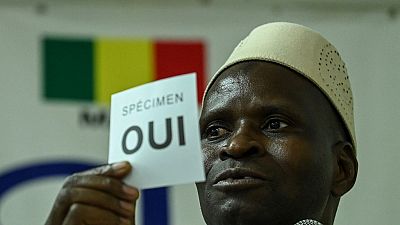

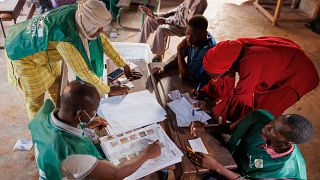
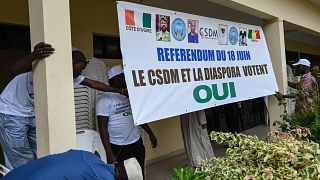
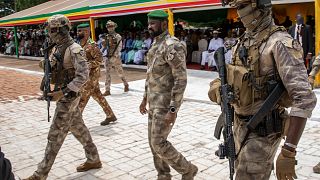
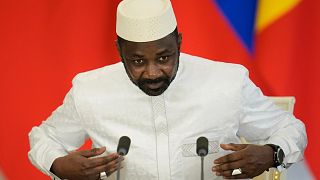




01:09
Guinea presents draft for new constitution, referendum set for September
01:00
Pix of the Day: June 19, 2025
00:54
Mali court places Canada's Barrick gold mine under provisional administration
01:49
Russia says it plans to boost economic and military cooperation with Africa
01:19
Italy's referendum on citizenship and labour laws fails due to low turnout
Go to video
Red Cross closes Niger offices and foreign staff leave after junta's expulsion order